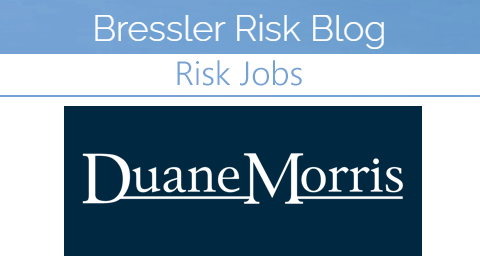Judicial Ethics & Law Firm Conflicts News — Talc DQ Fights Continue, Alito Stock Recusal, Texas Marriage Rule Update
Posted on
“J&J Seeks Beasley Allen’s Removal From NJ Talc Litigation” —
- “‘‘It stinks’ ain’t the law in New Jersey—you have to show an ethical violation.'”
- “That was the key argument Beasley Allen’s attorney Jeffrey M. Pollock brought to a New Jersey state court Tuesday in his attempt to convince the judges that the Alabama-based trial firm should be allowed to stay on as co-lead counsel in the massive litigation against Johnson & Johnson over alleged illness from exposure to talc products.”
- “The company urged the Superior Court Appellate Division panel to reverse a lower court ruling finding J&J’s prior bankruptcy lawyer hadn’t ‘associated’ with Beasley Allen despite collaborating with the trial lawyers in a mediation that sought to keep the multi-district litigation and multi-county litigation in New Jersey out of bankruptcy court. At stake: the major plaintiff-side firm’s cut of potentially $22 billion in claims brought by vaginal cancer patients who accused the health-care giant of selling asbestos-tainted talc products.”
- “Judges Mark K. Chase and Thomas W. Sumners Jr. focused on whether the activity of former Sidley Austin attorney James Conlan constituted ‘association’ when he jumped ship from the firm to form a settlement consultancy business called Legacy Liability Solutions, where he worked in a non-lawyer capacity. If interactions Conlan—who worked roughly 1,600 hours on J&J’s bankruptcy for Sidley—had with Beasley Allen could be considered ‘associating’ then they could violate New Jersey Rule 5.3(c) blocking conflicts arising from collaboration between attorneys and non-lawyers with conflicts in litigation.”
- “‘If Conlan was acting as an attorney would that have been problematic?’ Sumners asked.”
- “‘Yes,’ said Pollock, managing member of Pollock Law. ‘But he was not. He was never on the payroll. He was never hired.'”
Rules ‘Effecitvely Neutralized’” - “J&J portrayed this as an easy case, since no one disputes that if Conlan was acting as an attorney there would be a conflict.”
- “While case law doesn’t establish what association means, Conlan’s experience on this specific case is more than sufficient to disqualify Beasley Allen, said Peter G. Verniero, a former New Jersey Supreme Court justice and member at Sills Cummis & Gross PC.”
- “‘Our legal system cannot function if a lawyer for one side is permitted to collaborate or partner with lawyers on another side on the same matter involving the same issues and claims,’ he said.”
“Alito recuses himself from oil case ahead of Monday’s arguments” —
- “Supreme Court Justice Samuel Alito on Thursday recused himself from a battle between Louisiana parishes and major oil companies set to be argued next week. “
- “Alito regularly steps aside because of his direct stock holdings in more than two dozen companies, but the timing of his latest recusal was unusual. “
- “The conservative justice participated in the case when the court decided last summer to take it up. His announcement landed less than a week before oral arguments. “
- “In a letter to the parties, Supreme Court clerk Scott Harris explained that Alito was recusing himself because of his holdings in ConocoPhillips, the parent corporation of Burlington Resources Oil and Gas Company, one of the companies named in the suit. “
- “Before the justices agreed to get involved, Burlington Resources penned a letter to them saying the company was ‘withdrawing’ and would not ‘have any other involvement’ in ‘the above-referenced case.’ On that basis, Alito initially decided not to recuse himself, according to Harris.”
- “‘Later briefing, however, noted that Burlington remained a party in the district court,’ Harris wrote in his letter. ”
“Most Supreme Court justices do not directly own individual stocks. Alito’s decision to do so regularly leads him to recuse and has sparked criticism from some ethics watchdogs.” - “Alito has recused himself 12 times this term from voting on a petition or merits-stage case so far, more than twice as many as any of his colleagues, according to The Hill’s review of the court’s docket.”
“Texas Supreme Court allows judges to refuse wedding ceremonies based on religious beliefs” —
- “Texas judges can now refuse to perform same-sex wedding ceremonies based on religious beliefs.”
- “The Texas Supreme Court amended the Texas Code of Judicial Conduct, adding a comment to clarify that it is not a violation for judges to refrain from performing weddings due to a ‘sincerely held religious belief.'”
- “Jonathan Saenz, president of Texas Values, called the rule change ‘an important victory for religious freedom.'”
- “‘A judge should not have to choose between their conscience and their career,’ Saenz said in a statement.”
“Chief Justice James D. Blacklock and seven justices signed the order adding a comment to Canon 4 of the judicial conduct code.” - “A senior staff attorney with the American Civil Liberties Union (ACLU) of Texas provided the following statement:”
- “Allowing judges who offer marriage services to the general public to deny certain couples the right to marry paves the way for discrimination. Judges should remain neutral and unbiased when performing any public service, but this rule change holds weddings to a different standard and allows public officials to discriminate against us based on who we love, where we’re from, what we look like, or how we worship.”
- “Jacob Reyes, GLAAD Texas Representative and News Coordinator said:”
- “Breaking the law to discriminate is something all reasonable people object to. Texans, no matter their identity, expect more from state officials who swear to uphold the Constitution and treat everyone equally. Marriage equality remains the law of the land, as determined by the Supreme Court over 10 years ago and codified by Congress through the Respect for Marriage Act, and all officials have a responsibility to put personal views aside and serve their constituents.”
“Judge who allegedly kept ‘Book of Grudges’ faces misconduct charges” —
- “A Pennsylvania judge who allegedly kept a “Book of Grudges” and a sexually explicit calendar in her office violated judicial conduct standards, according to formal charges filed Wednesday.”
- “Zanelli allegedly described a local attorney as “just a d- – -” in the “Book of Grudges” and made notes that were critical of another person who appeared in her court in landlord-tenant matters. She placed the ‘Book of Grudges’ in a general work area in the office accessible to her staff to add notations to it if they wished, according to the complaint.”










